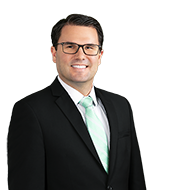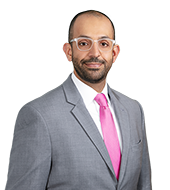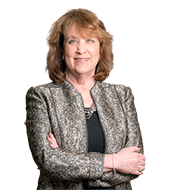Recent Changes to Washington State Tax Laws Will Increase Taxes for Many Taxpayers
In May 2025, Washington Governor Bob Ferguson signed into law several bills that will impact both individual and business taxpayers. Although the changes are likely to increase many taxpayers’ Washington tax bills, some taxpayers may be able to reduce the potential impacts of some of the changes with careful tax planning. Affected taxpayers should review these changes carefully with their tax advisors.
Business and Occupation Tax
Several bills made significant changes to Washington’s business and occupation (B&O) tax, including by increasing tax rates and limiting or eliminating deductions and certain tax preferences.
Tax Rates and Surcharges
HB 2081 made a number of changes to B&O tax rates and surcharges, effectively increasing tax rates on various activities. For example, the tax rate applicable to business income under the “service and other activities” classification will increase to 2.1% for gross income over US$5 million starting 1 October 2025. Starting 1 January 2026, the bill also imposes a 0.5% surcharge on Washington taxable income over US$250 million. The surcharge is in addition to other B&O taxes, effectively increasing the overall B&O tax rate for businesses exceeding the income threshold. The bill provides several exemptions from this surcharge, including for certain manufacturing activities and income already subject to other surcharges such as the advanced computing surcharge. However, starting 1 January 2026, the same bill also increases the advanced computing surcharge from 1.22% to 7.5%. Beginning 1 January 2027, the bill also increases tax rates applicable to several other B&O classifications, including certain manufacturing, retailing, and wholesaling classifications, to 0.5% from current rates of 0.471% (for retailing) and 0.484% (for manufacturing and wholesaling).
Effective 1 January 2026, SB 2020 creates a new B&O classification applicable to certain payment processors and imposes tax on such businesses at a rate of 3.1%. The bill also allows a payment processor subject to B&O tax under the new classification to deduct certain interchange fees, network fees, and fees retained by other payment processors.
The above changes not only increase overall tax rates on many businesses but also add complexity by creating new classifications, exclusions, and definitions. Because a taxpayer’s B&O tax rate is typically determined by the tax classification applicable to its activities, taxpayers should review these changes carefully to ensure that they are properly classifying their activities and will not be overpaying B&O taxes under an incorrect classification.
Investment Income Deduction
Effective 1 January 2026, HB 2081 also seeks to provide some guidance around the Washington Supreme Court’s recent decision in Antio, LLC v. Dep’t of Revenue, which held that investment income that is not incidental to a taxpayer’s main business purposes does not qualify for the investment income deduction. The bill generally allows a deduction from B&O tax for investment income if a person’s total worldwide gross income derived from investments is less than 5% of the person’s total worldwide income annually. The bill also permits certain nonprofit organizations, collective investment vehicles such as mutual funds, retirement accounts, and family investment vehicles to claim an investment income deduction even if they exceed the 5% threshold. The bill provides that amounts received by individuals from personal investments are generally not subject to B&O tax but does not specify whether other investment activities also are not subject to B&O tax. The bill leaves unanswered other questions related to investment income, including how such income should be apportioned for B&O tax purposes.
The legislature also directed the Department of Revenue to implement an expanded voluntary disclosure program during the 2025-2027 fiscal biennium for entities engaged in investment activities that are not banking, lending, or securities businesses. SB 5167 allows such entities that are not under audit as of 1 July 2025 to voluntarily disclose liabilities in exchange for waiver of penalties and interest.
Taxpayers receiving income from investment activities should review these legislative changes and the Antio case carefully. If a taxpayer has historical B&O tax liabilities from investment activities, participation in the temporary voluntary disclosure program could provide meaningful penalty and interest savings.
Tax Preferences
SB 5794 repeals several tax preferences effective 1 January 2026, including a credit for certain light and power businesses and gas distribution businesses and a credit related to new employment in certain international service activities.
Sales and Use Tax
Other bills made significant changes to Washington’s sales and use tax. These bills sought to expand the sales and use tax base as well as increase rates on certain property and services.
Effective 1 October 2025, SB 5814 expands the sales and use tax to apply to additional services, including certain information technology services, custom website development services, investigation and security services, temporary staffing services, data processing services, advertising services, and live presentations. The bill also removes several statutory exclusions from the definition of taxable digital automated services, including exclusions for services that primarily involve the application of human effort, data processing services, and advertising services.
SB 5801 makes other changes with respect to sales and use taxes imposed on certain transactions involving motor vehicles and private aircraft. The bill imposes an additional 10% luxury tax on the sale of certain noncommercial aircraft with a selling price over US$500,000 effective 1 April 2026. Effective 1 January 2026, the bill imposes an additional 8% luxury tax on sales or leases of certain passenger motor vehicles with a selling price over US$100,000. The bill also increases the retail car rental tax rate and, effective 1 January 2027, imposes the increased rate on certain peer-to-peer car sharing transactions.
These changes are likely to subject certain businesses to Washington sales and use tax obligations for the first time and impose tax on some transactions that have not previously been taxed. Businesses required to begin collecting and remitting sales taxes on previously nontaxable services will need to be prepared to adjust invoicing practices, set up other internal systems, and turn on internal and external compliance processes by the relevant effective date.
Capital Gains Tax
Beginning 1 January 2025, SB 5813 imposes an additional 2.9% tax rate on capital gains exceeding US$1 million. Combined with the current 7% tax rate, Washington capital gains exceeding US$1 million will effectively be subject to a 9.9% tax rate.
This publication/newsletter is for informational purposes and does not contain or convey legal advice. The information herein should not be used or relied upon in regard to any particular facts or circumstances without first consulting a lawyer. Any views expressed herein are those of the author(s) and not necessarily those of the law firm's clients.







